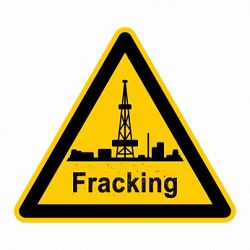

The Government has announced that fracking will once again be allowed to take place in England.
It was originally banned in 2019 due to increasing concerns over tremors occurring near fracking sites. In fact, at Cuadrilla's fracking site in Lancashire, over 120 tremors were recorded in 2019, though most of them were small scale and not felt on the surface. This also led the Conservative Party to declare in their current (2019) manifesto that "We will not support fracking unless the science shows categorically that it can be done safely".
Fracking involves exploiting small faults and stress cracks within shale rock. During the drilling process, water is injected in the rock to extract the gas. Due to the lubricating effect of the water, the shale rock can then move along faults triggering a tremor. There are also environmental concerns about the practice too, especially where it concerns an impact on groundwater.
At the same time as the announcement lifting the ban, the British Geological Survey published a new scientific review into fracking, concluding that there is still a limited understanding of the impacts of the drilling. Which means that the science is not showing "categorically that it can be done safely".
However, it would appear that the current political situation in Ukraine has sparked a return to the practice in order to strengthen our energy security, according to Business and Energy Secretary Jacob Rees Mogg. "In light of Putin's illegal invasion of Ukraine and weaponisation of energy, strengthening our energy security is an absolute priority," he stated.
Mr Rees-Mogg also stated that "tolerating a higher degree of risk and disturbance appears to us (the government) to be in the national interest given the circumstances."
This has understandably led to concerns from local communities and other groups, such as Friends of the Earth, whose energy campaigner Danny Gross said, "This announcement suggests that the government is planning to throw communities under the bus by forcing them to accept a higher degree of risk and disturbance."
However, Mr Rees-Mogg remains steadfast that due to the war in Ukraine, we have to use all available sources of fuel within the UK, instead of importing them. However, it remains to be seen whether this will include investment into renewable energy technology which is also capable of producing energy in the UK solely for UK consumers.
It is believed that it is unlikely that we'll see any fracking in place within the next six months due to the requirement for local planning approval and the process to grant permits. At the moment, however, permit conditions state that if there is any seismic activity at a fracking site, companies have to proceed with caution, and halt operations if there is a tremor over 0.5 magnitude. Although given the Government's stance that we have to tolerate a higher risk, this could well change.
Those opposing this change of government policy to allow fracking are also questioning why the government is not instead investing more in renewable energy alternatives. Studies from this year show that renewable energy in the UK is nine times cheaper than fossil fuel use, including gas.
Scotland and Wales will continue to oppose fracking and will not allow licences in their countries.
Would you like more news like this from Cedrec in your email? Then sign up for our free monthly bulletins.
If you want a bit more, you can also take a trial of our system and see how we make legislation simple!